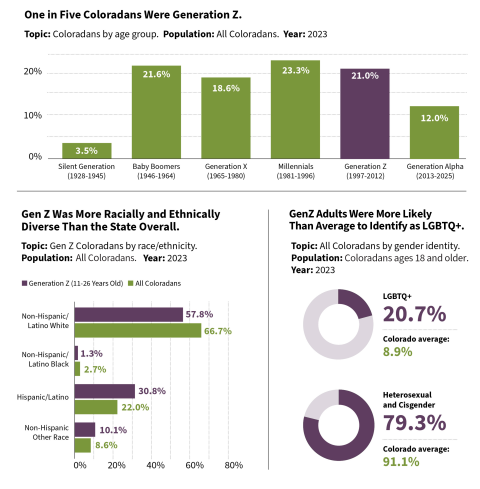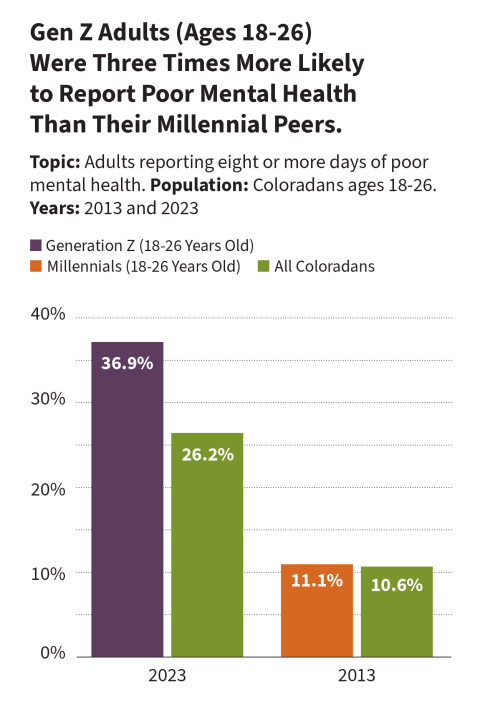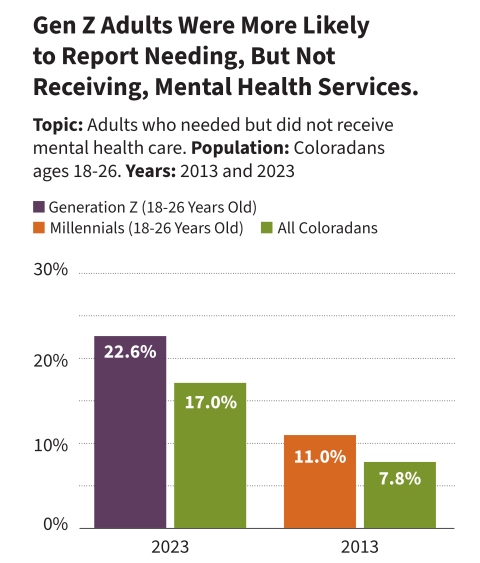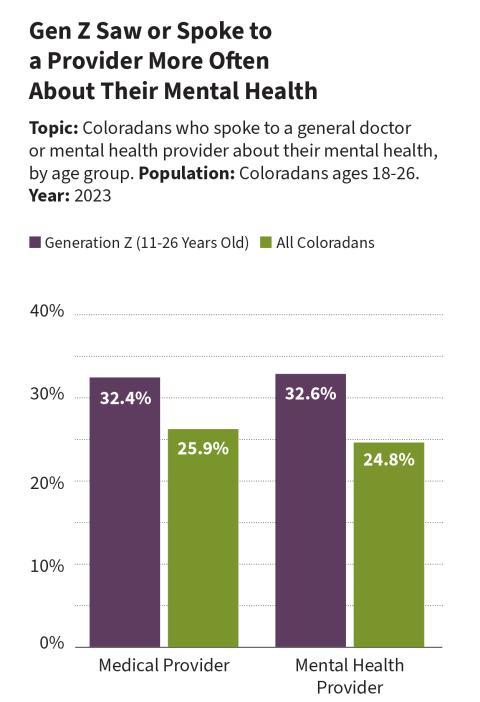A Changing Portrait of Young Adulthood
The CHAS shows how young adulthood has changed over the past 10 years. This section focuses on Gen Z Coloradans ages 18 to 26.
Because the survey has asked Coloradans about their general and mental health status since 2013, we can compare the health status of young adult Millennials from 10 years ago with Gen Z adults in the same life stage in 2023.
About one in 12 young Gen Z adults in 2023 reported fair or poor general health (8.5%), while about one in 11 young Millennial adults reported similar general health status 10 years prior (9.4%).
While general health status for this age group has stayed relatively the same over time, differences in mental health status have become more concerning.
Since 2013, the CHAS has asked Coloradans how many days in the past month their mental health was not good. CHI defines eight or more days as poor mental health. In 2023, 18-26-year-olds in Gen Z were three times as likely to report poor mental health compared with Millennials in the same age bracket 10 years ago (36.9% in 2023 versus 11.1% in 2013). These rates surpass the statewide trend in mental health (26.2% in 2023 and 10.6% in 2013).
In addition, more than one in five young adults in 2023 said they needed mental health care in the past year but did not get it (22.6%), while about one in 10 young adults in 2013 needed mental health care and didn’t get it (11.0%). As young adults, both generations were more likely than other Coloradans to need mental health care but not receive services (statewide 17.0% reported this barrier in 2023, and 7.8% reported it in 2013).
Stigma remains an obstacle to receiving services for young adults. In 2023, 10.6% of young adults cited stigma as a reason for not getting needed mental health care.
Navigating a Health Care Labyrinth
Looking at generational health trends over the past 10 years helps us to better understand Gen Z Coloradans, particularly their ability to access needed mental health care services. This section examines the experiences of all Gen Zers ages 11 to 26. These experiences are important to remember as Gen Z youth continue to enter adulthood.
Mental health worsened for all age groups over the past several years, but especially for Generation Z. Their rate of poor mental health steadily increased as they aged, from 13.7% in 2019, to 23.6% in 2021, and finally 28.9% in 2023.
Barriers to Accessing Care
When members of this generation needed mental health support, they faced significant challenges in accessing care due to cost, perception of health insurance coverage, and difficulty scheduling appointments.
Following statewide trends, half of people in Gen Z (50.1%) who didn’t get needed mental health services in 2023 cited concerns about the cost of treatment. Additionally, 42.6% of Gen Z Coloradans who didn’t get needed mental health services reported being deterred by the belief that health insurance might not cover the care they needed. This concern was even more common among Gen Z adults ages 18-26 who did not get needed mental health care — nearly three in five (58.1%) believed insurance coverage would be an issue. Beyond cost, 71.6% of this generation who did not get needed mental health care had a hard time getting an appointment. On average, more than half (57.2%) of Coloradans who didn’t get needed services had difficulties scheduling an appointment; while still an alarming number, this illuminates a striking contrast when compared with Gen Z’s ability to access care.





